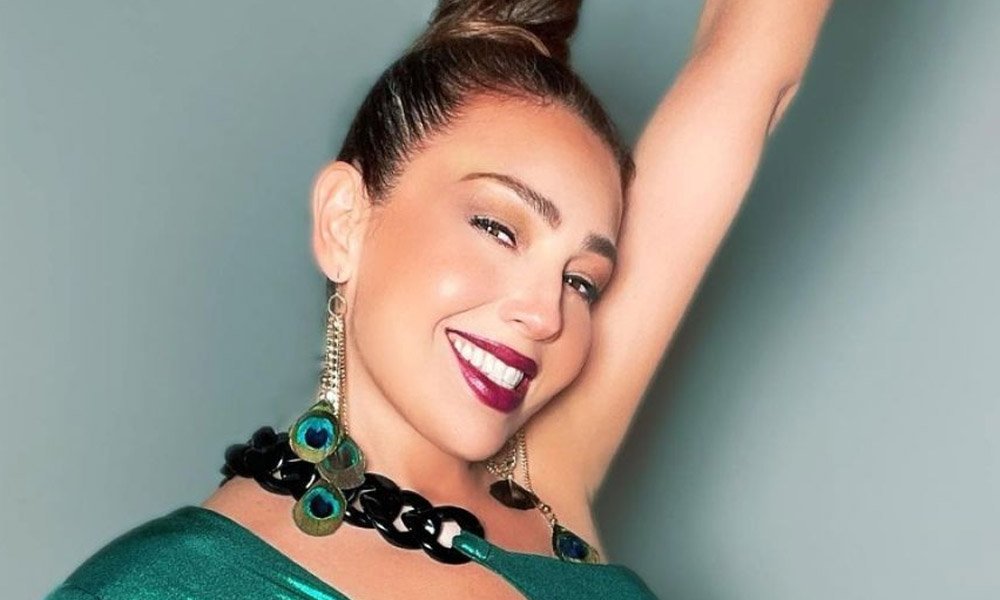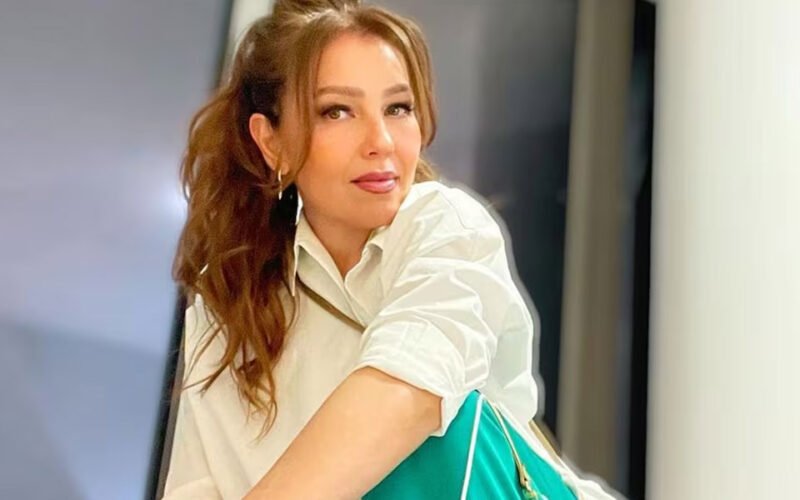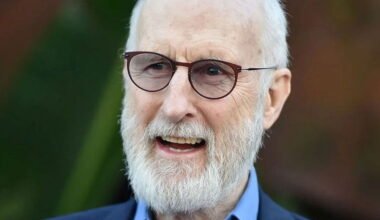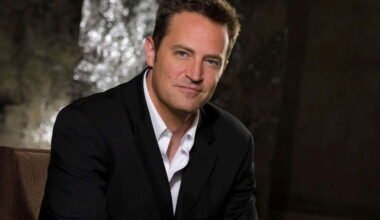Updated on: August 11, 2025
Imagine stepping into a dimly lit recording studio in Mexico City, the air thick with the hum of synthesizers and the faint echo of a pop ballad— that’s where Alfredo Diaz Ordaz Borja comes alive in my mind. Not as the son of a president, but as the guy who traded political podiums for producer’s chairs, crafting hits that still pulse through Latin airwaves. I’ve always been drawn to these hidden figures, the ones who orbit fame without hogging the spotlight, like the unsung roadie in a rock band’s epic tour. Alfredo? He was that and more—a bridge between presidential legacy and pop stardom, with a dash of scandal that feels straight out of a telenovela script. Let’s peel back the layers, shall we? I’ll take you through his world, family whispers and all, like we’re sneaking backstage at a sold-out concert.
Basic Information
| Attribute | Details |
|---|---|
| Full Name | Alfredo Diaz Ordaz Borja |
| Birth Year | 1950 |
| Death Date | December 15, 1993 |
| Cause of Death | Hepatitis C |
| Parents | Gustavo Díaz Ordaz (father), Guadalupe Borja Osorno (mother) |
| Occupation | Music Producer and Composer |
| Notable Relation | Romantic and professional link to singer Thalía |
| Children | Paulina Díaz Ordaz, Andrea Díaz Ordaz |
| Spouse | Paulina Castañón Ríos Zertuche |
Early Life and Presidential Roots
Picture this: It’s the early 1950s in Mexico, a nation buzzing from post-war optimism, and into this scene arrives Alfredo, the younger child of Gustavo Díaz Ordaz and Guadalupe Borja Osorno. Gustavo wasn’t just any dad—he’d climb to the presidency in 1964, steering the country through turbulent times until 1970, all stern policies and historical footnotes. But Alfredo? He grew up in the shadow of that immense legacy, yet chose to dodge the political glare. Family trees I’ve pieced together paint a vivid portrait: a household where power lunches mixed with everyday chaos, siblings like María Guadalupe adding to the sibling rivalry mix.
Growing up as the son of a future president must’ve felt like living in a fishbowl—every move scrutinized, every family dinner potentially headline-worthy. Alfredo, born in 1950, navigated this with a quiet rebellion, leaning toward creative sparks rather than campaign trails. His mother, Guadalupe, provided the steady anchor, a figure often overshadowed in the grand narratives but crucial in grounding the family. By the time Gustavo’s term ended, Alfredo was already charting his own course, away from the corridors of power. It’s like he looked at the family script and decided to rewrite it with guitar riffs instead of speeches— a move that set the stage for his unexpected pivot into music.
Family Ties: A Web of Legacy and Drama
Ah, families—they’re the ultimate plot twist, aren’t they? Alfredo’s clan reads like a dynastic saga, blending political heavyweight with personal heartaches. At the center: his father, Gustavo Díaz Ordaz, the man who led Mexico from 1964 to 1970, remembered for bold decisions and controversies that still spark debates today. Gustavo’s marriage to Guadalupe Borja Osorno produced a brood, including Alfredo as the younger one, and siblings such as María Guadalupe, who pops up in those intricate family branches like a recurring character in a long-running series.
Then there’s the next generation—Alfredo’s own kids, Paulina and Andrea Díaz Ordaz, born from his union with Paulina Castañón Ríos Zertuche. Paulina, in particular, has stepped into the public eye, sharing raw insights that add layers to the family portrait. She’s spoken of fractures, of how external forces—like a high-profile romance—shook the foundations. It’s heartbreaking stuff, reminiscent of those rock biopics where fame’s glow casts long shadows on loved ones. And let’s not forget the extended relatives; genealogy threads reveal a tapestry of descendants, each carrying a sliver of that presidential DNA. Alfredo himself? He seemed to embody the outlier—the artistic soul in a lineage of leaders, forging bonds that extended beyond blood into the creative world.
I’ve always thought families like this are like vinyl records: scratched with history, spinning tales of triumph and tension. Alfredo’s role as a father added warmth to his story, even as personal storms brewed. His daughters’ voices, echoing in interviews, remind us that behind every public figure is a private mosaic of joys and regrets.

Career in Music: From Backing Tracks to Spotlight Edges
Now, let’s crank up the volume on Alfredo’s professional life—because here’s where he truly shines, or rather, orchestrates from the wings. Ditching the expected path of politics, he dove headfirst into Mexico’s vibrant music scene in the 1980s and early ’90s. As a producer and composer, Alfredo wasn’t chasing solo stardom; he was the wizard behind the curtain, financing and shaping albums that launched careers. Think of him as the George Martin to emerging Beatles—quietly influential, with credits that include composing tracks and bankrolling early solo ventures.
His big break? Linking up with a young Thalía, the pop sensation who was just shedding her group days. Alfredo produced and financed her debut solo albums, infusing them with that infectious energy that propelled her to icon status. We’re talking 1990s vibes: synth-pop beats, heartfelt ballads, and a collaboration that blurred lines between work and romance. Music databases list him with composer nods on specific songs, his touch evident in the polished sound that defined an era. It’s cinematic, really—like a montage in a feel-good flick where the underdog producer spots raw talent and turns it gold.
But Alfredo’s contributions weren’t flashy; they were foundational. He composed, produced, and invested, all while steering clear of the limelight that engulfed his father’s world. In a career spanning roughly a decade before his untimely passing, he racked up credits that still resonate—numbers like album releases in the early ’90s, tracks that climbed charts, and a legacy that pop historians nod to with respect. If politics was his inheritance, music was his rebellion, a rhythmic list of achievements: producer on hit records, composer of memorable melodies, financier of dreams.
The Thalía Chapter: Romance, Scandal, and Echoes
Oh, reader, buckle up—this is the part that feels ripped from a blockbuster script. Enter Thalía, the dazzling singer whose path crossed Alfredo’s in the late 1980s, sparking a relationship that was equal parts passion and controversy. He was in his 40s, she in her late teens; the age gap alone fueled whispers, but add his presidential pedigree and her rising star power, and you’ve got tabloid gold. They met amid music sessions, where Alfredo wasn’t just producing her tracks—he was financing her solo leap, composing pieces that became staples in her catalog.
Their romance unfolded like a whirlwind tour: stolen moments in studios, public appearances that set tongues wagging, and a bond that Alfredo himself described in interviews as transformative. But here’s the drama— it allegedly strained his marriage to Paulina Castañón Ríos Zertuche, leading to family rifts that his daughter Paulina later called out as destructive. Picture the fallout: headlines screaming “scandal,” family dinners turning tense, all while Thalía’s career skyrocketed. By 1993, just as their story hit its crescendo, Alfredo’s health faltered, ending in tragedy on December 15.
This chapter? It’s got it all—love, betrayal vibes, and a pop culture ripple that still surfaces in viral clips. TikToks replay archival footage, YouTube dives deep into retrospectives, keeping the narrative alive like an evergreen hit single. Alfredo and Thalía: a duo that defined an era’s gossip, blending melodies with melodrama.
Legacy and Family Echoes
Fast-forward to today, and Alfredo’s story lingers like a haunting chorus. His death at 43 from hepatitis C cut short a life brimming with potential, leaving behind a musical footprint and family threads that continue to unravel in public. Daughters Paulina and Andrea carry the torch, with Paulina voicing grievances that paint Thalía as the wedge in their parents’ marriage—a claim that’s resurfaced in 2023 interviews, stirring fresh buzz.
It’s fascinating how one man’s choices ripple outward: from presidential halls to recording booths, touching lives in rhythmic waves. Alfredo’s avoidance of politics, his embrace of creativity—it’s a reminder that legacies aren’t always linear. They twist, they groove, they surprise.
FAQ
Who was Alfredo Diaz Ordaz Borja’s father?
Gustavo Díaz Ordaz, who served as President of Mexico from 1964 to 1970, was Alfredo’s father, creating a direct link to one of the nation’s pivotal political figures.
What was Alfredo Diaz Ordaz Borja’s career?
Alfredo worked as a music producer and composer, notably producing and financing early solo albums for singer Thalía while contributing compositions to her work in the early 1990s.
When did Alfredo Diaz Ordaz Borja die?
He passed away on December 15, 1993, at the age of 43, due to complications from hepatitis C.
Did Alfredo Diaz Ordaz Borja have children?
Yes, he had two daughters, Paulina and Andrea Díaz Ordaz, from his marriage to Paulina Castañón Ríos Zertuche.
What is known about Alfredo Diaz Ordaz Borja’s relationship with Thalía?
Alfredo had a romantic and professional relationship with Thalía in the early 1990s, producing her music and facing public scandal due to their age difference and its impact on his family.
Was Alfredo Diaz Ordaz Borja involved in politics?
No, unlike his father, Alfredo chose a path outside politics, focusing instead on a career in the music industry.






